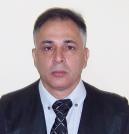The Judicial Training School has a collegiate body of methodological advice - Academic Committee - which is responsible for endorsing the teaching programs of the courses and other improvement actions that are taught in the teaching center. It is made up of professionals of great academic prestige within the Popular Courts System.
a) Prepare draft programs and curricula for the professional and ethical technical training of judges and administrative auxiliary personnel, in accordance with the policies and strategies agreed by the Governing Council of the People's Supreme Court and monitor their execution.
b) Ensure the preparation and overcoming of the management cadres and their reservations, until the last link of the Human Resources chain, as established in the National Strategy for the Preparation of the Popular Courts System.
c) Methodologically guard the work of the territorial Teaching Units.
d) Direct the categorization processes of teaching staff and convene the corresponding Professional Exercises.
e) Ensure the execution of all teaching activities that are centrally executed, as well as directly coordinate and supervise the administrative and logistical support activities necessary for the performance of their functions and activities.
f) Carry out systematic activities of diagnosis and determination of real training needs and incorporate them into the curricula by designing, when necessary, specific programs aimed at solving them.
g) Coordinate the formulation, organization and operation of a comprehensive system for the evaluation of teaching activities, their coordinators, trainers, trainers, members of technical support for teaching, as well as the impact of training on the effective performance of functions and attributions of its recipients.
h) Record the results of the courses taught; the training received and the corresponding notes to each training and certify their results in a timely manner to the trainees and the courts to which they belong.
i) Estimate the budgetary needs that are required to develop the approved preparation actions and monitor their execution.
j) Establish, maintain and strengthen exchange relations with similar institutions, universities, branch schools, teaching and research centers of the territories, and guarantee their collaboration in the execution of the System Training Strategy.
k) Submit the approval of the Governing Council of the People's Supreme Court the Draft Regulations for the use of its services, ensure compliance and suggest the modifications considered.
l) Propose the integration of the Technical Advisory Council.
m) Organize and participate in international courses for the training or improvement of the workers of the court system.
n) Direct, execute and promote consulting and research work with applicable results.
o) Implement the application of the Opposition Exercises and Contests of Merits convened by the Governing Council of the Supreme People's Court.


